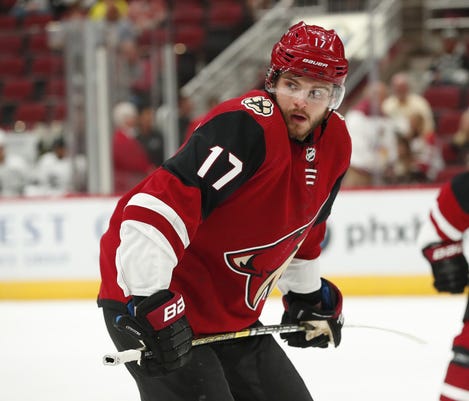By Joe Starkey
June 29, 2019

There’s a decent chance we’ll look back on the Sidney Crosby-Evgeni Malkin era and be perfectly justified making the following statement: They only would have won a single Stanley Cup if Phil Kessel hadn’t come along.
Maybe they’ll win another without Kessel, who was unsurprisingly shipped off to Rick Tocchet Land Saturday night, traded to the Arizona Coyotes in exchange for enigmatic forward Alex Galchenyuk and prospect defenseman Pierre-Olivier Joseph.
Galchenyuk was a better return than I imagined -- he could play with Malkin -- and I can’t discount the idea of the Penguins stars winning another Cup. Crosby’s still great. Malkin has bounced back big before. This team still has plenty of talent, including some younger talent that doesn’t get talked about a lot. Jim Rutherford has some freed-up cash now, too.
But let’s not fool ourselves. It takes incredible luck to win it all. Any championship team will tell you that. Plus, teams all over the Eastern Conference are rising fast.
Let’s be honest about this, too: Kessel helped secure legacies here, including his own. He changed everything. He was Rutherford’s most significant addition. A team that couldn’t score in the playoffs despite all its elite talent – the Penguins had two goals in an entire series against the Boston Bruins – suddenly could again. Kessel led the NHL in playoff goals over the 2016-17 postseasons.
He also became a folk hero, an Everyman. Just like you, just like me, with the gut and the receding hair line. He didn’t give a hoot about what anyone thought of him, either. That endeared him to people. And what a player on his good days. A sniper when he elected to shoot, which wasn’t often enough in recent years. An elite playmaker, which some of us didn’t know until we got to see him for 82 games a season (and he always plays 82 games).
Kessel did have 174 points over the past two seasons, you know.
At the same time, he wasn’t easy to handle. That’s a fact. He doesn’t like to be coached. He certainly doesn’t want to play on a third line.
Click on the link below to read the rest of the article:








